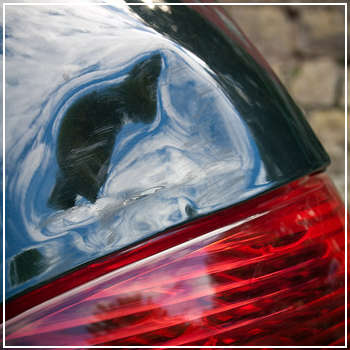Now, picture this: you're still paying off your car loan, meaning the bank technically owns the car until you clear the balance. Even though you might be tempted to avoid fixing it, doing so could land you in hot water. The bank expects you to maintain the car in pristine condition, so skipping necessary repairs could lead to trouble. If you don't fix it and claim the insurance money instead, you might face accusations of insurance fraud. And when it's time to return the car, the leasing company will likely require all damages to be fixed anyway. On top of that, your insurance provider keeps a record of everything. So, if you get into another accident later, they might reduce any settlement payouts based on the pre-existing damage. Plus, not addressing the issue now could hurt the car's resale value in the future. Potential buyers might shy away from purchasing a car that needs major repairs, even if you manage to sell it privately. Here’s something important to consider: just because the damage looks minor doesn’t mean it is. A seemingly simple dent could affect critical safety components beneath the surface. Many people assume that cosmetic damage isn’t serious enough to warrant insurance coverage, but that’s not always true. Damaged bumpers or lights can compromise your car's functionality. Ask yourself these questions: If you answer “no†to more than one of these questions, then your car shouldn’t be on the road until those issues are addressed. Your car might be moving, but if it fails a safety inspection, you’re asking for trouble. Driving with problems like excessive emissions, misaligned headlights, or malfunctioning taillights increases the risk of getting pulled over. Headlamps and taillights play a crucial role in ensuring safe driving conditions: If your car isn’t ready for a safety inspection, it’s best to keep it parked until you can get it fixed. Need help assessing post-collision damage or getting your car repaired? DaSilva’s Auto Body is here for you. Give us a call at our Naugatuck location to schedule an appointment today. Compared to other heating methods, inverter pool heat pumps are generally more energy-efficient and cost-effective in the long run with advanced technology. They can also operate in a wider range of temperatures and can heat water more gradually and evenly, which can lead to a more comfortable swimming experience. UWO offers a wide range of high-efficient inverter pool heat pumps for above ground pools. Swimming Pool Heat Pump,Pool Heat Pump,Portable Pool Heat Pump,Refrigerant Swimming Pool Heat Pump FOSHAN UWOTEC NEW ENERGY CO., LTD. , https://www.uwo-heatpump.com So, you've been rear-ended, leaving your bumper and trunk dented. After making sure everyone's okay and exchanging insurance details, you notice the car still seems to run fine. But here’s the thing—just because it drives doesn’t mean it’s good to go without further checks. Let me break it down for you.
So, you've been rear-ended, leaving your bumper and trunk dented. After making sure everyone's okay and exchanging insurance details, you notice the car still seems to run fine. But here’s the thing—just because it drives doesn’t mean it’s good to go without further checks. Let me break it down for you.Financial Consequences
Hidden Damage Risks
Potential Safety Hazards